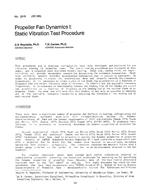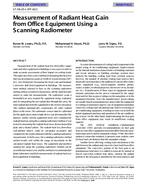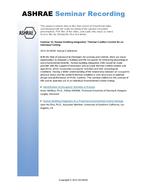A numerical study is presented to predict the air-side heat transfer and pressure drop characteristics of fin-and-tube heat exchangers with a smooth wavy fin geometry. All calculations are performed using CFD software. A three-dimensional approach is used that considers conduction in the fins and the presence of tubes along the flow path. The flow is treated as incompressible, laminar, and steady for all calculations. Computations are performed for Reynolds numbers, Re Dh, ranging from 250 to 1200, corresponding to frontal air velocities ranging from 1 m/s to 5.5 m/s (3.3 ft/s to 18 ft/s). Comparison with experimental data shows that the computational model predicts the Colburn j factor within 11.5%. The numerical analysis tends to overpredict the Colburn j factor at low Reynolds numbers and overpredict the friction factor by 11% to 19% over the operating Reynolds number range. In addition to the steady flow analysis, an unsteady flow model is used at the highest Reynolds number case, Re Dh = 1200, to compare to the steady flow model.
Units: Dual
Citation: Symposium, ASHRAE Transactions, vol. 106, pt. 2
Product Details
- Published:
- 2000
- Number of Pages:
- 8
- File Size:
- 1 file , 540 KB
- Product Code(s):
- D-7287


